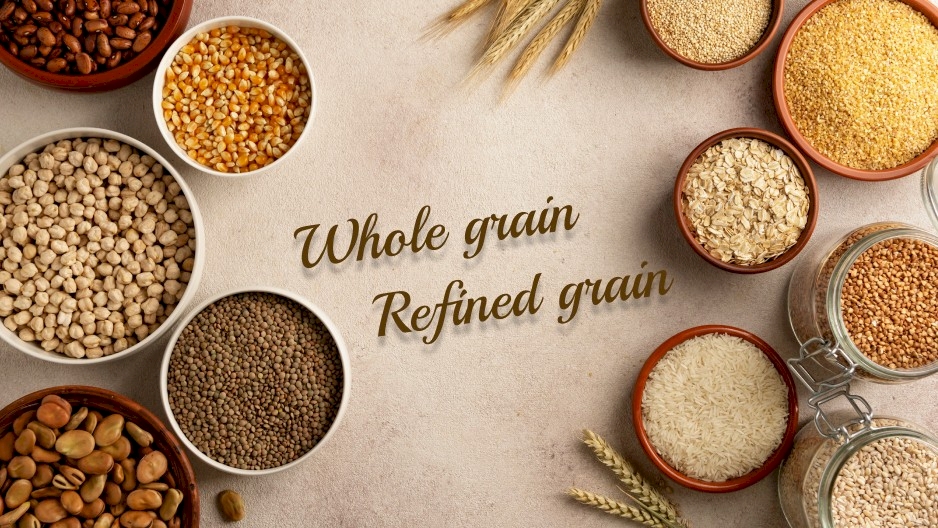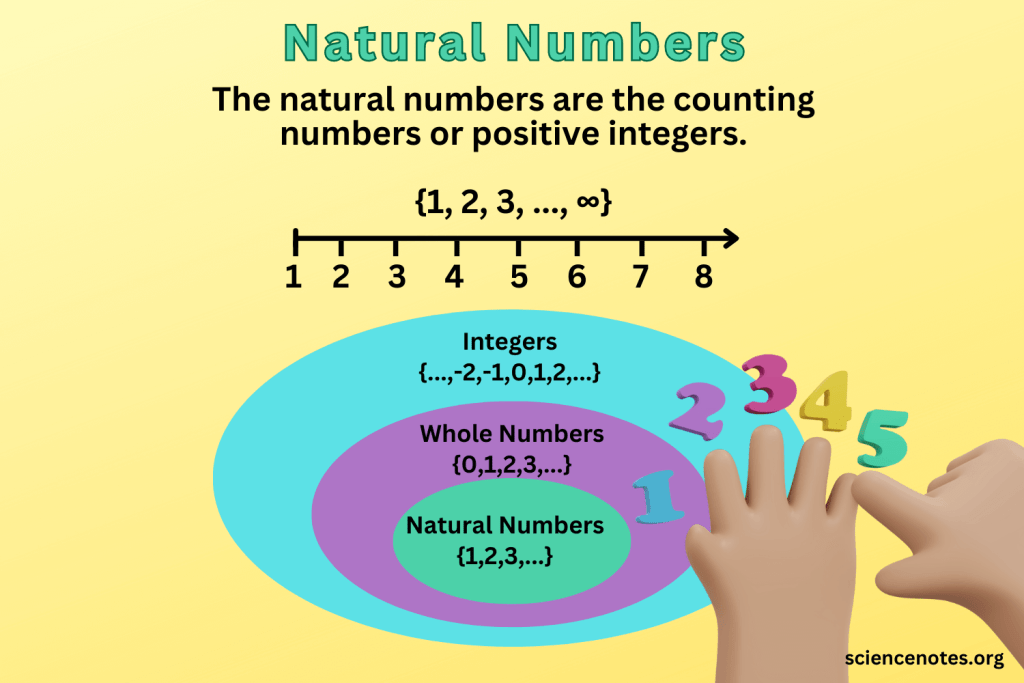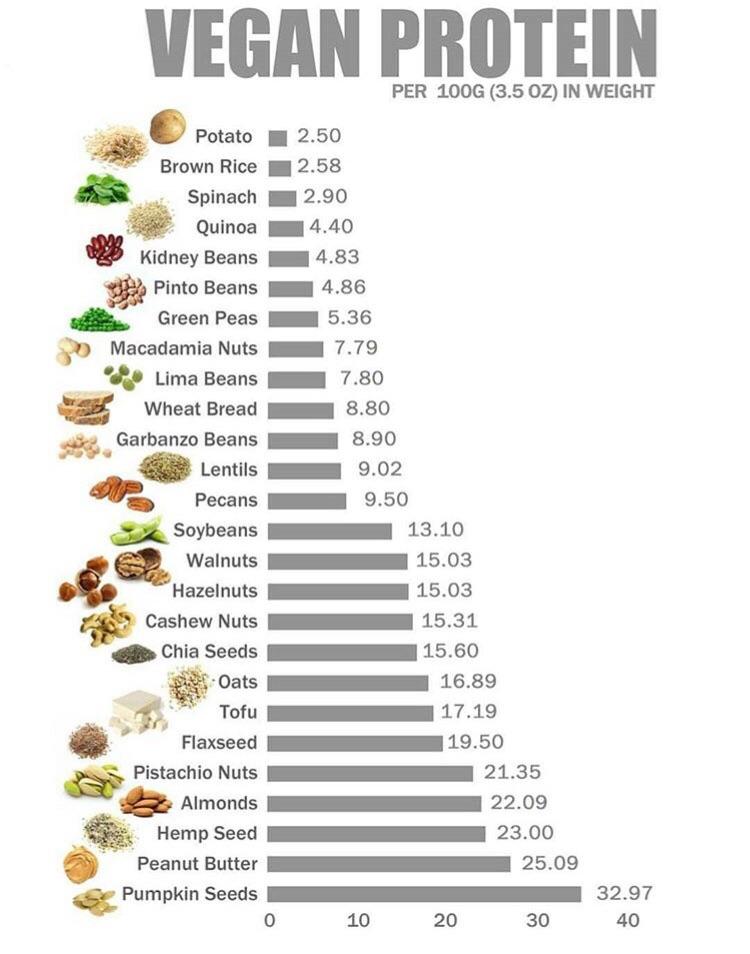Making the switch from refined grains to whole grains can have a profound impact on your health, a change that seems small but packs a nutritional punch. Understanding the differences between these two types of grains is the first step towards making smarter dietary choices that support long-term well-being.
The modern diet often features refined grains, but what if I told you that choosing whole grains over refined grains could be one of the simplest yet most effective changes you could make for your health? Let’s delve into the world of grains and discover why this easy swap is much more than a mere dietary trend.
What Are Whole Grains And Refined Grains?
Whole grains consist of three key parts: the bran, germ, and endosperm, each offering valuable nutrients. They are grains that have been left intact during processing, preserving their nutritional content. Refined grains, on the other hand, are processed to remove the bran and germ, leaving mostly the carbohydrate-rich endosperm. This process strips away fiber, vitamins, and minerals, leading to a loss in nutritional quality.
While refined grains have a finer texture and longer shelf life, they lack the essential nutrients that whole grains provide. This is why whole grains are a cornerstone for a healthy diet, as they deliver fiber, B vitamins, antioxidants, and trace minerals like iron and zinc.
It’s important to be able to identify whole grains in your diet. Examples of whole grains include whole wheat, brown rice, oats, barley, and quinoa, amongst others. In contrast, refined grains are found in products like white rice, white bread, and many pastries and snacks.
Why Should You Choose Whole Grains Over Refined Grains?
When you opt for whole grains, you’re supporting your health in several ways. Whole grains are more nutritionally dense, making them a smarter choice for maintaining a balanced diet. They help to keep you feeling fuller for longer and provide sustained energy, which can be particularly beneficial for weight management.
Additionally, the presence of fiber in whole grains plays a crucial role in digestive health and blood sugar regulation. By choosing whole grains, you’re also reducing your risk of chronic diseases such as heart disease, type 2 diabetes, and certain types of cancer.
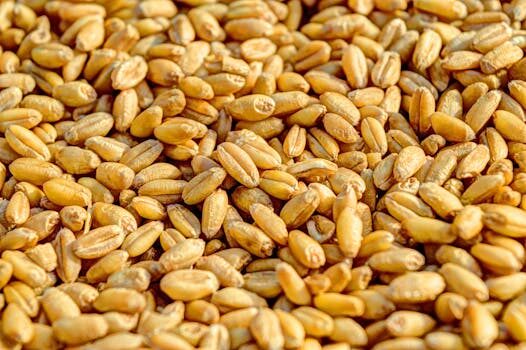
Refined grains, while they may be enriched with some vitamins and minerals after processing, still do not offer the same health benefits as whole grains. This is why nutritionists and health organizations recommend making whole grains a significant part of your diet.
What Are The Health Benefits Of Whole Grains?
The health benefits of whole grains are extensive. They have been linked to a lower risk of heart disease, type 2 diabetes, obesity, and some forms of cancer. The fiber in whole grains helps to lower cholesterol and improve bowel movements, which aids in keeping the digestive system healthy.
Whole grains also have a low glycemic index, meaning they help in blood sugar regulation by slowly releasing sugar into the bloodstream. This can be particularly beneficial for those with diabetes or at risk of developing the condition.
A diet rich in whole grains can also reduce inflammation, which is associated with many chronic health conditions. In addition, whole grains provide essential nutrients that support overall health, including B vitamins, iron, magnesium, and selenium.
How To Identify Whole Grains On Food Labels?
Identifying whole grains on food labels can be confusing due to misleading marketing terms. To ensure you’re choosing whole grains, look for the word “whole” before the grain’s name, such as “whole wheat” or “whole oats.” The Whole Grain Stamp, a yellow and black logo, is another indicator of the product’s whole grain content.
Additionally, check the ingredients list. Whole grains should be listed as the first ingredient, indicating that they are the primary component. Terms like “multigrain,” “stone-ground,” and “100% wheat” do not necessarily mean the product is made with whole grains.
Another tip is to look for products with a high fiber content, as this is a good indication that the product contains whole grains. However, be wary of products that claim to be “made with whole grains” but list refined grains as the first ingredient and have a low fiber content.

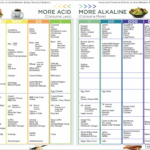 Alkaline-acid food charts to help balance your pH
Alkaline-acid food charts to help balance your pHWhat Are Some Examples Of Whole Grains And Refined Grains?
Examples of whole grains include:
- Brown rice
- Oats
- Whole wheat
- Buckwheat
- Bulgur (cracked wheat)
Refined grains are often found in:
- White rice
- White flour
- White bread
- Pastries
- Many breakfast cereals
How Do Whole Grains Support Digestion And Blood Sugar Regulation?
The fiber in whole grains significantly aids digestion by adding bulk to the stool, which helps it pass more quickly through the intestines. This helps to prevent constipation and can even reduce the risk of colorectal cancer.
For blood sugar regulation, the soluble fiber in whole grains slows the absorption of sugar into the bloodstream. This steady absorption helps to prevent spikes and crashes in blood sugar levels, providing more consistent energy throughout the day.
Whole grains also have a lower glycemic index than refined grains, making them a better choice for people with diabetes or those looking to maintain a healthy blood sugar level. The fiber content also contributes to a feeling of fullness, which can prevent overeating and assist with weight management.
What Are Easy Whole-Grain Swaps For Your Meals?
Integrating whole grains into your diet can be as simple as making a few easy swaps. Try replacing white rice with brown rice or quinoa, choosing whole grain bread over white bread, and opting for whole wheat pasta instead of regular pasta.
For breakfast, switch from refined cereal to oatmeal or whole grain cereal. When baking, you can substitute whole wheat flour for a portion of white flour in recipes. Even small changes, like choosing popcorn over chips for a snack, can make a difference.

Further Insights on Grain Choices
Let’s explore some related questions that might arise when considering the benefits of whole grains over refined grains.
Why Are Whole Grains Considered Better Than Refined Grains?
Whole grains are considered better than refined grains due to their rich nutritional profile. They maintain all parts of the grain, delivering fiber, vitamins, minerals, and other phytochemicals that are largely lost during the refining process.
The health benefits of consuming whole grains include improved digestion, better weight management, and a lower risk of chronic diseases. This nutritional superiority makes them a fundamental part of a balanced diet.
What Does Replacing Refined Grains With Whole Grains Decrease The Risk For?
Replacing refined grains with whole grains decreases the risk for several health conditions, including heart disease, type 2 diabetes, obesity, and some forms of cancer. The fiber and nutrients in whole grains contribute to overall health and help prevent these conditions.
What Are The Pros And Cons Of Whole Grains?
The pros of whole grains include their nutrient density, health benefits, and contribution to a feeling of fullness. The cons may include potential allergens for some individuals and sometimes a slightly higher cost. However, the health benefits far outweigh any cons.
Are Refined Grains Better For You Than Whole Grains True Or False?
False. Refined grains are not better for you than whole grains. They lack the essential nutrients that whole grains provide and can lead to health issues when consumed in excess.
As you consider making the switch to whole grains, remember that whole grains vs. refined grains is not just a matter of taste but also one of health. Every choice you make can contribute to a healthier, more balanced diet. To illustrate the benefits of whole grains, let’s take a look at a helpful video:

 Your guide to healthy (and not so healthy) cookware
Your guide to healthy (and not so healthy) cookwareIncorporating whole grains into your diet is a simple step you can take towards enhancing your health. The vital nutrients they provide play a significant role in preventing disease and improving overall well-being. By understanding the nutritional value of whole grains vs. refined grains, you’re equipped to make informed decisions that benefit your long-term health. So, why not start making those easy whole-grain swaps today?

